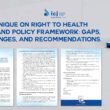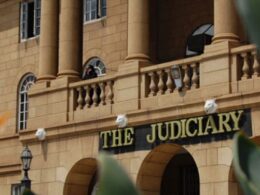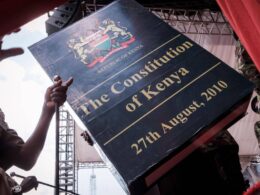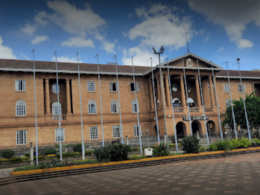By Damaris Kemunto Oteki
The Constitution of Kenya, 2010, underscores the importance of media freedom in Article 34.[1] The Constitution further provides that the State shall not interfere with the functioning of the media or penalize the media for opinions expressed. However, all media freedoms under the Constitution are applicable with the caveat that the right does not extend to “propaganda for war, incitement to violence, hate speech or advocacy of hatred.” To uphold the Constitutional guarantee in Article 34, Kenya has enacted media laws to regulate the media space. Notably, the Media Council Act[2] creates the Media Council of Kenya, whose mandate is to promote and protect the freedom and independence of the media.
A free, objective and skilled media is essential to any democratic society. The Universal Declaration of Human Rights recognizes freedom of expression as a fundamental human right; everyone is entitled to seek, receive and impart information and ideas through any media, regardless of frontiers.[3]
The media sector in Kenya has been a direct reflection of the political transformation since independence, with both authoritarian and liberal regimes having differing effects on the sector[4]. The politics and economic interests of the colonial government and white settlers provided a legal and policy framework for the media. As early as the 1920s, nationalist movements and the press had started opposing paternalistic colonial policies. The colonial government feared a free and thriving nationalist press that acted as the mouthpiece for political independence; thus, it enacted Penal laws to control alleged seditious nationalist print media[5].
Over the past decade, however, the arc has been towards enhancements of freedom of expression, access to information, and economic growth that has supported the nation’s technological development and the viability of national and local news media. The current media landscape is more diverse, with the industry attracting high levels of investment capital in both mainstream and digital media platforms. Professional associations and independent statutory institutions like the Kenya Editors Guild (KEG), Kenya Union of Journalists (KUJ) and the Media Council of Kenya (MCK) continue to play a critical role in protecting journalists and the media industry. Despite the measures put in place, there have been setbacks in achieving press freedom in Kenya.
The fundamental right to seek and disseminate information through an independent press is under attack. The threats have taken a new dimension as they are publicly defended and even boldly justified by some of the perpetrators. Elected leaders, who should be press freedom’s staunchest defenders, have explicitly tried to silence critical media voices. Despite the robust legislation in Kenya, media freedoms have been constantly curtailed. The Cabinet Secretary for Trade and Investment recently made foul utterances on the Nation Media Group in two scenarios. On one occasion, he stated, “Nation Media, you must now decide whether you are a newspaper, broadcasting house, media house or a political party. I have said, from tomorrow, from today even; any government department found placing advertising in Nation Media Group, consider yourself out (of government).”
While the media is vital to holding the government accountable, these statements reduce the nation’s commitment to press freedom. This is demonstrated by the 2023 World Press Freedom Index, where Kenya ranked 116th out of 180 countries regarding limited press freedom. The current ranking depicts a downward trajectory on press freedom in Kenya as the index in 2022 ranked Kenya at 69 out of 180.[6] It is particularly concerning since the decline in press freedom is a sign of and a factor in the disintegration of democratic institutions and principles. Media freedoms feed into the broader development objective of empowering people. It can only be achieved through access to accurate, fair and unbiased information. However, the challenges to media freedoms call for reforms in the media sector. Press freedom can rebound from even lengthy stints of repression when given the opportunity. In this regard, there is a need for sustained conversations and multi-sectoral approaches to achieve a free press in Kenya.
[1] Article 34, Constitution of Kenya 2010
[2] Media Council Act, No. 16 of 2013 http://kenyalaw.org:8181/exist/kenyalex/actview.xql?actid=No.%2046%20of%202013 last accessed 18/5/23
[3] https://www.un.org/en/about-us/universal-declaration-of-human-rights#:~:text=Article%2019,media%20and%20regardless%20of%20frontiers last accessed on 18/5/23
[4] “Media Viability in East Africa: Kenya.” https://mediainnovationnetwork.org/wp-content/uploads/2021/08/Media-Viability-in-Kenya-1.pdf last accessed 18/5/23
[5] Media Control in Kenya: The State of Broadcasting under the New Kenya Information and Communication Act of 2013 https://core.ac.uk/download/pdf/234652651.pdf last accessed 21/6/23
[6]https://rsf.org/en/country/kenya#:~:text=Freedom%20of%20the%20press%20is,challenge%20press%20freedom’s%20basic%20principles last accessed on 18/5/23










